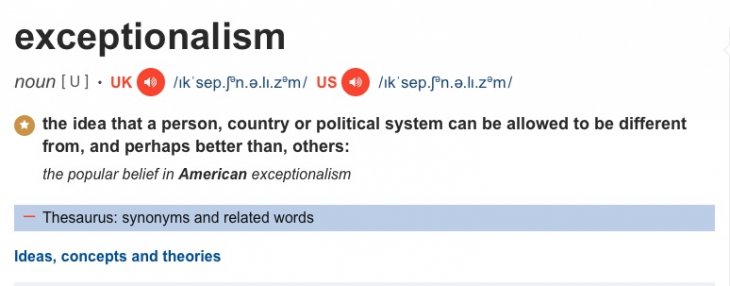What are the analytical and political stakes of thinking about political economic practice through the lens of exceptionalism? These I take to be the fundamental questions underlying the very insightful comments by Patricia Owens and Stephen Collier, two scholars whose work I greatly admire, on my Security Dialogue article ‘Security, Economy, Population’.

Best and Collier’s remarks are provocative, thoughtful and, perhaps most importantly, generative of new connections and directions for those who want to rethink the relationship between economy, security and politics today. In this brief response, I would like to pick up on four key challenges that Owens and Collier raise in their comments, and which move the conversation forward in important ways. I will begin by engaging with their appeals to take seriously the social and technocratic character of the relationship between security and economy. In doing so, I will also make a case for why exceptionalism remains a powerful category for understanding the logics of liberal governance. I move on to briefly examine the history of 20th century economic exceptionalism, adding a further layer of complexity to the narrative that Collier elaborates. I will conclude by returning to the question that I explore in the article’s conclusion: arguing for the usefulness of the concept of economic exceptionalism in our attempts to make sense of these troubling times.
Although Owens and Collier articulate their challenges in different terms, both question my narrow focus on crisis forms of exceptionalism. No doubt inspired by her own very important research into the historical emergence of the social and the often-neglected role of oikonomiain contemporary international politics, Owens suggests that we must attend to the ‘social production’ of exceptionalism. She then goes on to argue that the emphasis on exceptions obscures the ways that patterns of exclusion occur ‘all the time’ in economic management, not just at rare moments of crisis. Collier also points towards the ways that emergency-management has been embedded in a wide range of mundane bureaucratic processes—moving it beyond the kind of singular sovereign decisions that scholars of exceptionalism have tended to emphasize.
Both scholars are absolutely correct to identify this lacuna in the article, which focuses on what I describe as emergency exceptionalism. This article is part of a bigger project that seeks to make sense of both emergency and more mundane, technocratic forms of exceptionalism. In the sister-article to this one, ‘Technocratic Exceptionalism: Monetary Policy and the Fear of Democracy’(just published in International Political Sociology), I suggest that we also need to consider the role of everyday economic exceptionalism. In order to illustrate this paradoxical concept, I point to the parallels between border guards and central bankers. Both, I suggest, ‘operate, on a day-to-day basis, in political spaces exempt from many of the norms of liberal democratic politics, and yet have the power to define and constrain them.’In identifying this connection, I am drawing on rich scholarship on the mundane character of security exceptionalism (such as work by Didier Bigo, William Walters, Marieke de Goede and Louise Amoore) that attends to the ways in which exceptionalist politics can operate on a daily basis through a myriad of everyday practices that sort the safe from the unsafe, the included from the excluded.
How does this logic operate in the economic context? It does so by cordoning off a whole host of different aspects of economic policy that are deemed to be too important to be left to the vicissitudes of democratic oversight. As I note in my Security Dialogue article, capitalist economies are highly unstable. We should not be too surprised then to find that, ever since liberal states began to expand the democratic franchise in the 20thcentury, they have had to contend with the fact that the general public has a tendency of voting to constrain the wilder side of the liberal market economy when given the chance. While Karl Polanyi’s proposed resolution of this tension—using democratic authority to constrain the free market— gained some influence in the post-war era, Friedrich Hayek’s neoliberal response won out in the late 1970s. Since then, most liberal states have opted to protect the market by limiting democratic oversight over key economic policies —creating pockets of technocratic exceptionalism in the process. Why should we think these dynamics as a form of exceptionalist politics rather than a more efficient kind of policy-making? There are three compelling reasons to retain this language —in spite of the very real and reasonable concerns that both Owens and Collier flag.
First, these kind of economic practices are exceptionalist because they are immensely political. Monetary policy is a domain that is supposed to be in need of protection from democratic whim because, we are told, the public tends to vote for inflationary policies. Yet, as Kathleen McNamara has demonstrated in her article on the ‘Rational fiction’of central bank independence, this arms-length approach to monetary policy does not in fact improve economic outcomes. Instead, it actively reproduces a set of policies that, by making price stability rather than employment the dominant goal of monetary policy, bears considerable responsibility for growing inequality. Although I would agree with Owens here that the central actors in the story that I am telling are generally political elites, their actions nonetheless reproduce a particular set of class, gender and racial dynamics, and have profound consequences for the lived experiences of ordinary people.

Second, the logic underpinning these economic policies is parallel to the one that I outline in ‘Security, Economy, Population’: both emergency and technocratic forms of exceptionalism are defined by the articulation of an extreme threat, the suspension of normal democratic procedures, and the implementation of the exception through a range of technical practices. In the case of monetary policy, the logic is very clear: the threat of inflation (particularly hyper-inflation) is deemed severe enough to justify the suspension of democratic oversight, which had been the norm in most western countries until the introduction of central bank independence the 1980s. This exception has been implemented through a series of bureaucratic practices, such as inflation targeting, that have minimized the scope for considering their distributive consequences.
Third, once we recognize this exceptionalist pattern in the economic context, we can also begin to make connections with the growing literature in legal and security studies on the rise of legislative exceptionalism. As Andrew Neal, John Ferejohn and Pasquale Pasquino have noted in the British and American cases, respectively, in recent decades we have seen far fewer cases in which formal emergency powers are invoked to respond to crises, and far more reliance on legislative measures—such as the PATRIOT Act in the US and the Defense Against Terrorism Acts in the UK. While this kind of legislative exceptionalism has the advantage of some initial democratic oversight (even if it is usually an extremely rushed form), it blurs the line between the norm and the exception and is more liable to be normalized over time, as what was once an exceptional power (of surveillance, for example) becomes routine.
If economic exceptionalism can take these different forms—emergency, technocratic, legislative —then what are its historical patterns? This question takes me back to the fascinating historical discussion that Collier introduces, when he discusses the efforts by American policymakers in the 1930s to reduce that government’s reliance on emergency powers by creating more technocratic capacity. While this historical account is compelling, we should not be too quick to assume a linear path between the 1930s and today. In my own recent research into anti-inflation policies in the 1970s, I was struck by the extent to which liberal democratic governments continued to make use of formal emergency powers in this era —as President Nixon did in 1971 when he imposed wage and price controls, and as Prime Minister Heath did in Britain in 1973-74 when he imposed a three-day work week in response to the coalminers’ strikes. It is only in the early 1980s, with the election of Margaret Thatcher and Ronald Reagan that we see a clear rejection of such policies and embrace of a more technocratic kind of exceptionalism in monetary policy—in which the explicitly political, negotiated solutions to inflation that were the norm in the 1970s are replaced by monetary rules.
Although I am still in the process of making sense of this puzzle, it is clear that the relationship among different forms of exceptionalism is complex and dynamic—and far from linear. In the aftermath of the 2008 global financial crisis, for example, central banks were able to create new exceptionalist powers in the context of the emergency precisely because of their technocratic exemption from full democratic accountability. At the same time, the remarkable expansion of their powers after the crisis ultimately made people more aware of their unelected and largely unaccountable status, raising questions about the sustainability of their technocratic exceptionalism. At Judith Butler reminds us, the exceptional and the governmental are intricately linked in contemporary society.
This brings us at last to the present moment of political disquiet. Both Collier and Owen, in different ways, question the category of economic exceptionalism not only in analytic but also in normative terms, asking whether it helps us understand the present moment or obscures its dangers. As I have written elsewhere, there was a moment in the early days of Trump’s election that I wondered whether I had been wrong to argue for greater democratic accountability for central banks. After all, shouldn’t we all be relieved that there are at least some areas of economic life that are protected from Trump’s political interference? Yet, if we want to understand how we produced a western world of inflated asset prices, declining real middle-class incomes and spiralling wealth inequality, then we do have to pay attention to the technocratic practices that ensured that price stability would trump all other economic goals, whatever the costs to the many (and benefits to the few). And, if we want to understand why there is so much disillusionment with expert authority —particularly economic authority— then we also have to pay attention the specious economic ideas that have been championed by a neoliberal elite as too important to be subject to debate. And when we ask ourselves what has led to the impoverishment of contemporary democratic debate, then we need to pay attention to the systematic effort by our leaders to exclude politically salient issues from the agenda in the name of economic necessity.
The language of economic exceptionalism is powerful not only because it allows us to analyze the complex tensions within liberal modes of governance, but also because it enables us to diagnose some of the sources of the current democratic crisis—and to call for their transformation.
Jacqueline Best is Professor at School of Political Studies, University of Ottawa. The Security Dialogue blogpost on her article discussed in these rejoinders and response can be found here.